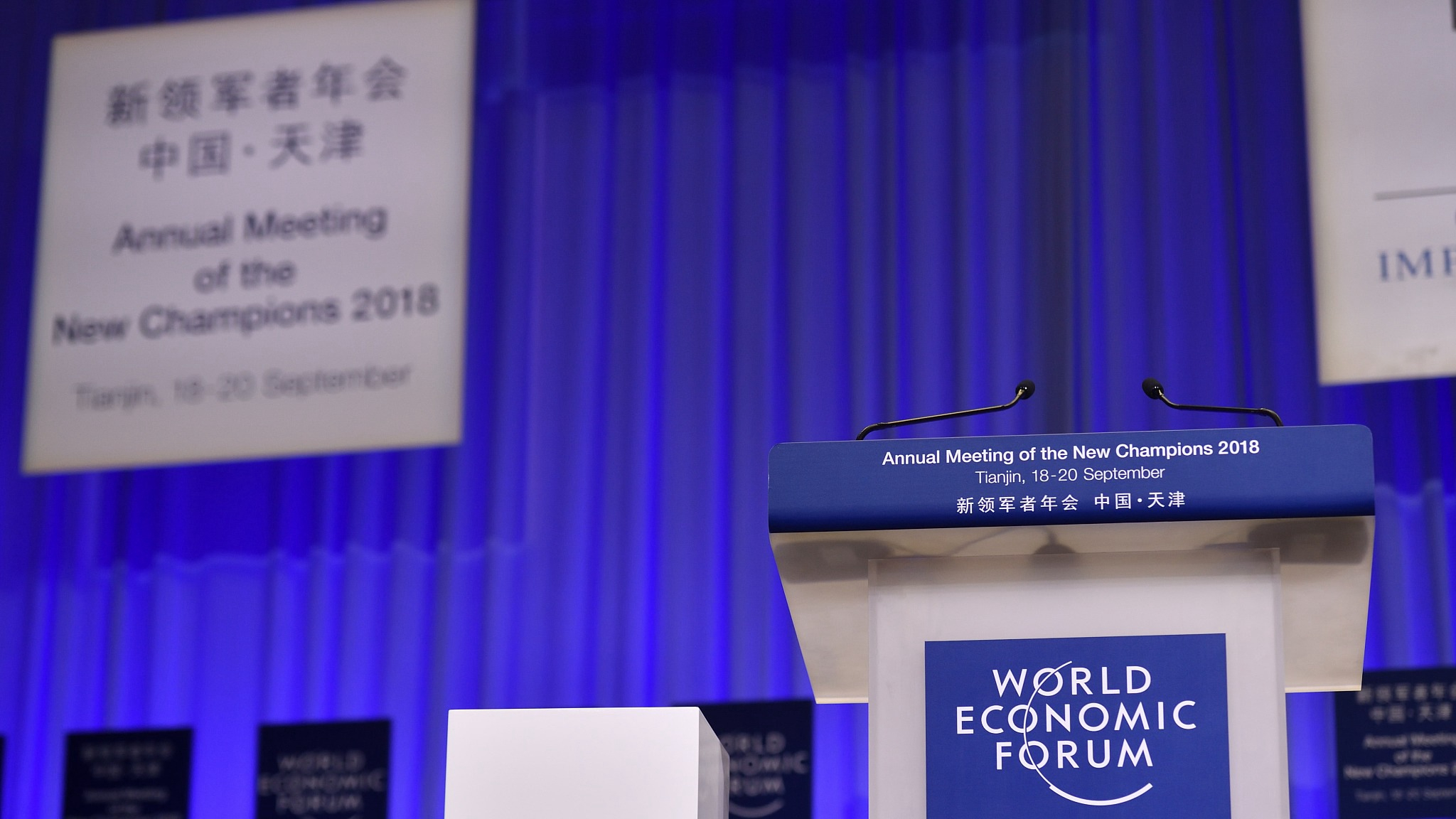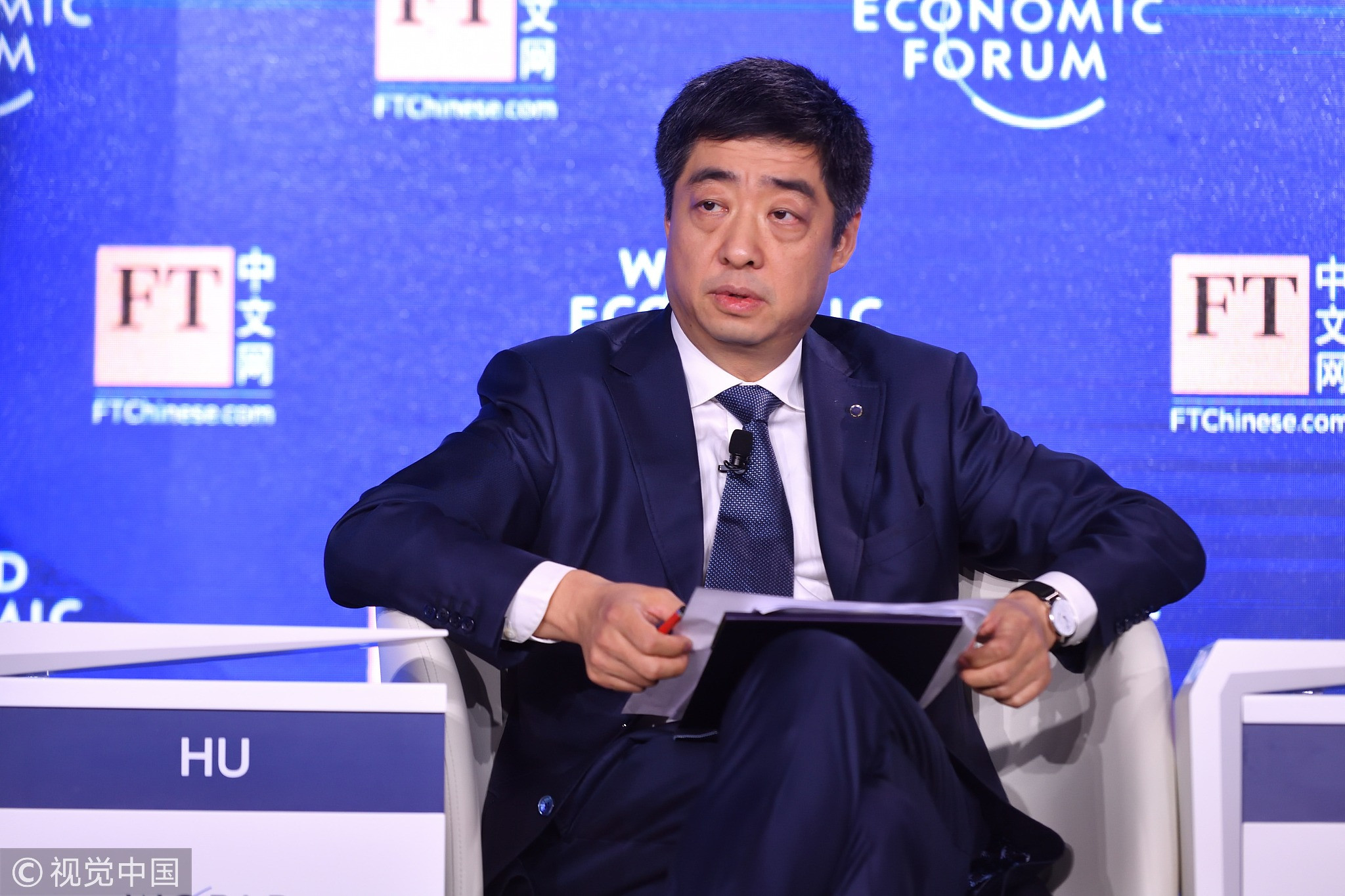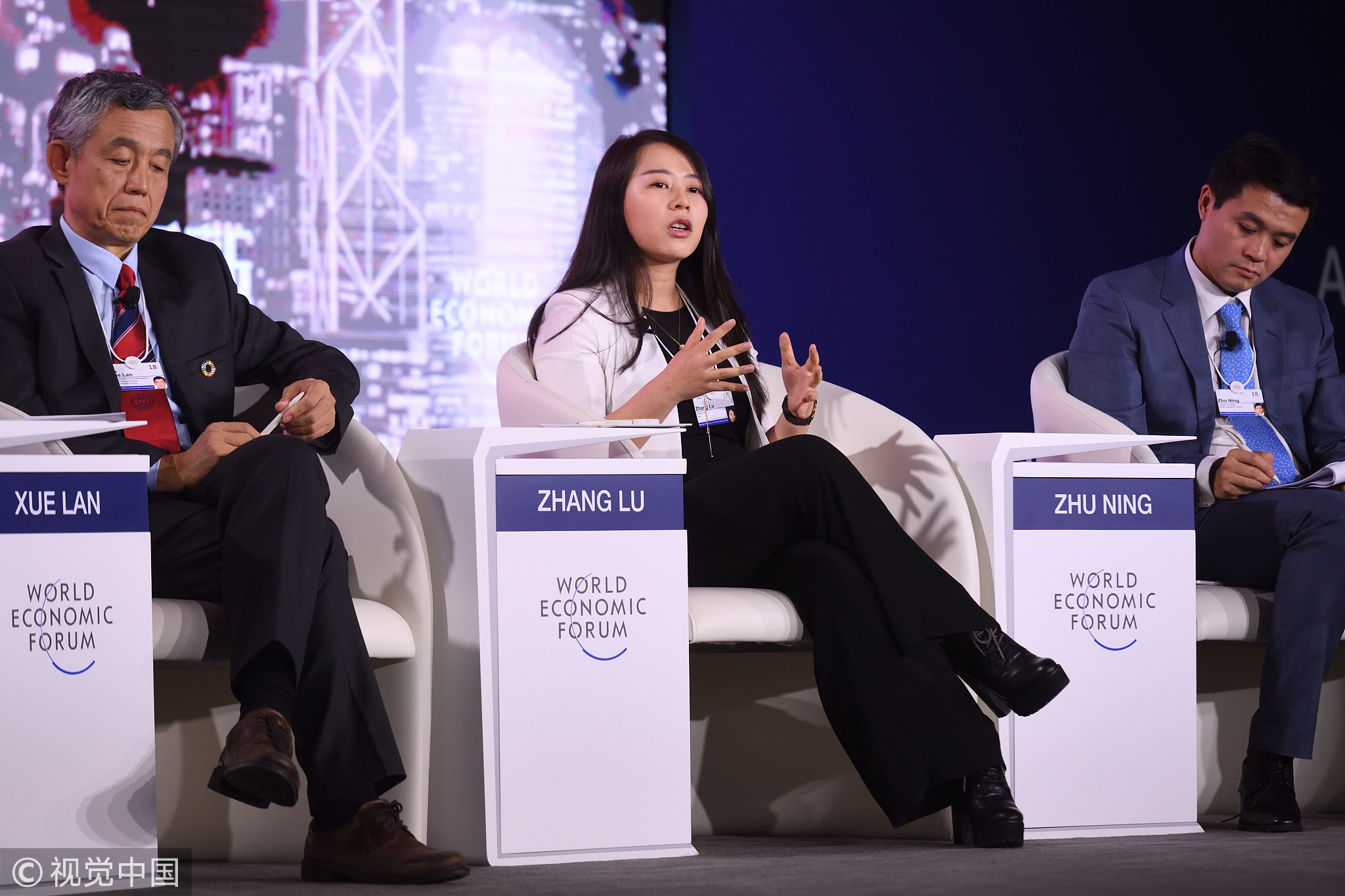
Opinions
10:57, 21-Sep-2018
Opinion: Summer Davos in Tianjin, making the world better
Updated
10:15, 24-Sep-2018
Victor Gao

Editor's note: Victor Gao is vice president of the Center for China and Globalization (CCG) and chairman of the China Energy Security Institute. The article reflects the author's opinion, and not necessarily the views of CGTN.
The Summer Davos in Tianjin came and went, with a big bang. Two days in Tianjin were full of seminars, forums, debates, speeches, interviews, and exhibitions. Thousands of delegates came from all over the world, including heads of state and government, leaders of all kinds in the public and private sectors, outstanding representatives from the academia, media and non-governmental organizations from China and the rest of the world. Every one was eager to bounce off ideas, theories, experiences, expectations and dreams, all centered around how to improve the state of the world.
Indeed, the world today is at a crossroad, and mankind is faced with an important choice between continued globalization vs. anti-globalization, more free trade vs. more protectionism, a more integrated and inclusive world vs. a more fragmented and xenophobia world, and a brighter and more fulfilling future vs. a darker and more threatening future.

Hu Houkun, deputy chairman at Huawei Technologies Co. Ltd., speaks during the forum in Tianjin, September 18. /VCG Photo
Hu Houkun, deputy chairman at Huawei Technologies Co. Ltd., speaks during the forum in Tianjin, September 18. /VCG Photo
The indications and conclusions from the Tianjin Davos are loud and clear. Premier Li Keqiang of China reaffirmed China's continued reform and opening to the outside world and announced major policy initiatives aimed at reducing the cost of doing business in China and leveling the playground for all companies in China, Chinese and foreign companies alike.
Premier Li Keqiang also assured the world that China will continue to pursue free trade and will fight against protectionism and frontal assaults on free trade. Delegates from various countries exchanged views on the need to make sure that the fast-coming AI and new technologies will work for, not against humanity; the need for companies and countries alike to adapt to the fast-changing world; and the need to unlock an experimental mind, to design human-centered technology, to expand innovation ecosystems, to accelerate innovation for inclusive growth, and to shape innovative societies in the fourth industrial revolution.
As the moderator for an important panel on how to strengthen innovation across the Belt and Road Initiative, I had the chance to interact at close range with my panelists and the audience, including Mr. Raimonds Vejonis, the President of Latvia, Mr. He Lifeng, the Chairman of the National Development and Reform Commission of China, and senior representatives from the Tianjin City Government, the Hong Kong Stock Exchange, and AIIB, and listen to their views and aspirations for how BRI can better connect the world and make doing business easier and more efficient for all those involved with BRI.
Indeed, while the whole concept of BRI was a result of innovation designed to satisfy the urgent need to build up better connectivity of infrastructure of all kinds, so that participating countries can trade and promote industrialization and modernization with greater efficiency and higher productivity, innovation does not stop at the concept of BRI, but is needed at every step and every phase of the unfolding and implementation of BRI. Innovation for BRI does not come from one country alone, but need to involve every country, every company and every participant involved in the great enterprise of building and strengthening BRI.

Panelists discuss development topics during the forum in Tianjin, September 18. /VCG Photo
Panelists discuss development topics during the forum in Tianjin, September 18. /VCG Photo
Innovation for BRI is not an end result, but an ever-going process to find better ways and means to maximize the benefits for all the participants of the BRI. President Vejonis of Latvia and Chairman He Lifeng of China's NDRC recounted their experience in 2017 of cutting the ribbon for the first Chinese-Europe cargo train fully loaded with cargo made in China, originating from Yiwu of China and terminating in Riga of Latvia. Starting from scratch just a few years ago, such China-Europe cargo trains now run daily between dozens of cities in China and in Europe, contributing in a significant way to the greater connectivity across the Eurasian continent.
Summer Davos World Economic Forum has been held in China for the last ten years, alternating between east China's Tianjin Municipality and Dalian City, northeast China's Liaoning Province. It has become a key platform for looking at the mega trends in the world every year, helping mankind better understand and comprehend the status of the world and better charter a course of action for the future. The Summer Davos in Tianjin for the last two days were not only timely but highly relevant to how we can charter a better course of action for the future. In the world of fast and profound changes, all of us need to choose to do the right thing, not only for ourselves but for mankind as a whole.
(If you want to contribute and have specific expertise, contact us at opinions@cgtn.com.)

SITEMAP
Copyright © 2018 CGTN. Beijing ICP prepared NO.16065310-3
Copyright © 2018 CGTN. Beijing ICP prepared NO.16065310-3